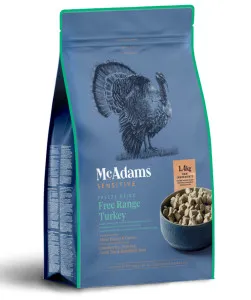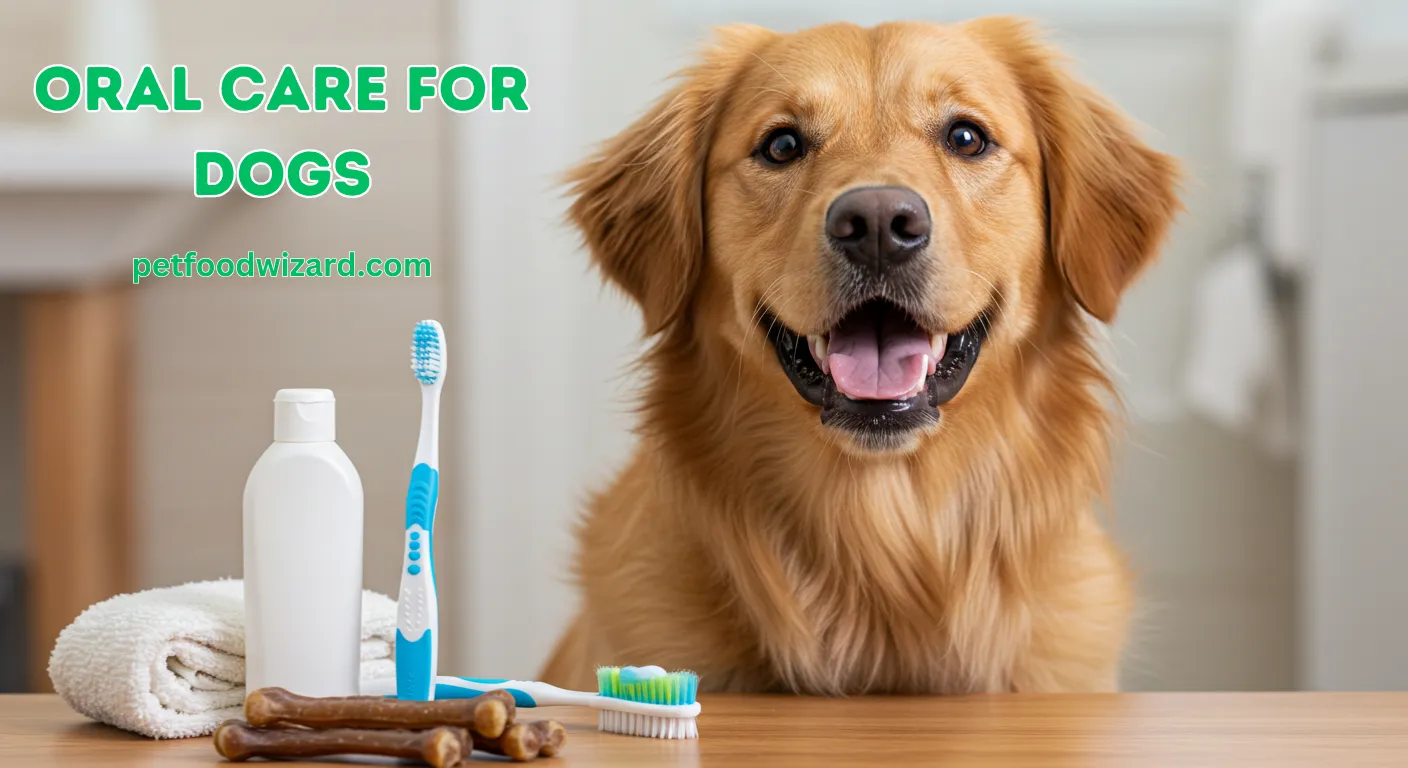The Importance of Oral Care for Dogs
When it comes to keeping your dog healthy, oral care is often overlooked. Many pet owners focus on diet, exercise, and regular vet visits but forget that dental health plays a crucial role in their dog's overall well-being. Poor oral hygiene can lead to serious health issues, including gum disease, tooth loss, and even heart problems. In this blog post, we’ll explore why oral care for dogs is essential, how to maintain it, and the best practices to ensure your furry friend has a healthy smile for years to come.
Why Dental Health Matters for Dogs
Just like humans, dogs can suffer from a variety of dental problems. Plaque and tartar buildup can lead to gingivitis, which, if left untreated, can progress to periodontal disease. This condition not only affects your dog’s mouth but can also impact their internal organs. Bacteria from infected gums can enter the bloodstream and cause damage to the heart, liver, and kidneys. Regular oral care can prevent these issues and keep your dog happy and healthy.
Additionally, dental problems can cause significant pain for your dog, making it difficult for them to eat or enjoy their favorite activities. By prioritizing oral care, you’re not only protecting their health but also improving their quality of life.
Signs of Dental Problems in Dogs
It’s important to recognize the signs of dental issues early so you can address them before they become severe. Here are some common symptoms to watch out for:
- Bad breath: While dog breath isn’t typically fresh, an unusually foul odor can indicate a problem.
- Difficulty eating: If your dog is reluctant to eat or chews on one side of their mouth, they may be experiencing pain.
- Red or swollen gums: Inflammation is a sign of gingivitis or infection.
- Loose or missing teeth: This is a clear indicator of advanced dental disease.
- Excessive drooling: While some breeds naturally drool more, a sudden increase can be a red flag.
- Start early: Introduce oral care routines when your dog is young to help them get used to it.
- Use positive reinforcement: Reward your dog with treats or praise after brushing or using dental chews.
- Be patient: It may take time for your dog to feel comfortable with oral care. Go at their pace and avoid forcing them.
- Make it fun: Turn brushing into a game or use flavored toothpaste to make the experience more enjoyable.
If you notice any of these signs, it’s important to consult your veterinarian. Early intervention can prevent more serious health issues down the line.
How to Maintain Your Dog’s Oral Health
Maintaining your dog’s oral health doesn’t have to be complicated. With a few simple steps, you can keep their teeth and gums in great condition. Here’s how:
1. Brush Your Dog’s Teeth Regularly
Brushing your dog’s teeth is one of the most effective ways to prevent plaque and tartar buildup. Use a toothbrush designed for dogs and a pet-safe toothpaste. Human toothpaste can be harmful to dogs, so always choose a product specifically formulated for pets. Start slowly, allowing your dog to get used to the process, and gradually increase the frequency. Aim to brush their teeth at least 2-3 times a week.
2. Provide Dental Chews and Toys
Dental chews and toys are a great way to supplement your dog’s oral care routine. These products are designed to reduce plaque and tartar while satisfying your dog’s natural urge to chew. Look for options that have the Veterinary Oral Health Council (VOHC) seal of approval, as these have been proven to be effective.
3. Feed a Balanced Diet
A healthy diet plays a significant role in your dog’s dental health. Dry kibble can help scrape away plaque, while wet food may contribute to buildup. Consider using a Pet Food Analyzer to ensure your dog’s diet is balanced and supports their overall health, including their teeth and gums.
Recommended Products

McAdams Freeze Dried Free Range Turkey is an excellent choice for oral care for dogs. This dog food contains Boneless Free Range Turkey 86.5% and other high-quality ingredients that promote overall health.

McAdams Freeze Dried Free Range Chicken is an excellent choice for oral care for dogs. This dog food contains Boneless Free Range Chicken 86% and other high-quality ingredients that promote overall health.

Canagan Insect is an excellent choice for oral care for dogs. This dog food contains Freshly Prepared Insects (27%)* and other high-quality ingredients that promote overall health.
4. Schedule Regular Dental Checkups
Just like humans, dogs benefit from regular dental checkups. Your veterinarian can perform a thorough cleaning and identify any potential issues before they become serious. Most vets recommend an annual dental exam, but the frequency may vary depending on your dog’s age, breed, and overall health.
Common Dental Problems in Dogs
Understanding the most common dental problems in dogs can help you take proactive steps to prevent them. Here are a few conditions to be aware of:
1. Periodontal Disease
Periodontal disease is the most common dental issue in dogs. It begins with plaque buildup, which hardens into tartar and causes inflammation of the gums. If left untreated, it can lead to tooth loss and damage to the jawbone. Regular brushing and professional cleanings are the best ways to prevent this condition.
2. Tooth Fractures
Dogs love to chew, but hard objects like bones or antlers can cause tooth fractures. These fractures can be painful and may require extraction or other dental procedures. To prevent this, provide your dog with safe, chew-friendly toys.
3. Oral Tumors
While less common, oral tumors can occur in dogs. These growths can be benign or malignant and may require surgical removal. Regular dental checkups can help detect tumors early, improving the chances of successful treatment.
Tips for Making Oral Care Easier
If your dog is resistant to oral care, don’t worry—there are ways to make the process easier and more enjoyable for both of you. Here are some tips:
Conclusion
Oral care is a vital part of keeping your dog healthy and happy. By brushing their teeth, providing dental chews, feeding a balanced diet, and scheduling regular checkups, you can prevent serious dental problems and ensure your dog’s overall well-being. Remember, a healthy mouth leads to a healthier life for your furry friend.
For more tips on keeping your pet in top shape, check out our Pet Food Analyzer to ensure your dog’s diet supports their dental and overall health. Your dog deserves the best care, and it all starts with a healthy smile!
